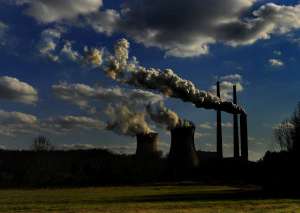
The Washington Post / Getty Images
Jia Lynn Yang of the Washington Post has a nice piece this morning on the real impact of government regulations on employment, pivoting off the tightening environmental rules that have led some coal plants to close early. She finds that on the whole, regulations don’t have much impact on jobs:
Some jobs are lost. Others are created. In the end, say economists who have studied this question, the overall impact on employment is minimal.
“If you’re a coal miner in West Virginia, it’s not a great comfort that a bunch of guys in Texas are employed doing natural gas,” said Roger Noll, an economics professor at Stanford and co-director of the university’s program on regulatory policy. “Some people identify with the beneficiaries, others identify with those who bear the cost, and no amount of argument is ever going to change their minds.”
According to data from the Bureau of Labor Statistics, few layoffs seem to be caused directly by regulations—in 2010 0.3% of people who lost their jobs in layoffs were let go because of government regulations, compared to 25% who were cut because of a drop in demand. And the process of meeting regulations can create employment too, as workers are needed to retrofit plants and install new equipment.
I came to a similar conclusion in a story out in this week’s print magazine—sadly residing behind the paymoat, so subscribers only—that looks at the Obama administration’s regulatory “war on coal.” As the Environmental Protection Agency has tightened rules on air pollution, the burden has fallen first on coal plants—and energy companies and Republicans are complaining that the rules are costing jobs:
“Is there a war on coal?” asks American Electric Power (AEP) CEO Michael Morris. “I think that’s fair to say.” Morris’ opinion matters. AEP is one of the largest and most coal-dependent utilities in the country, and the company has not suffered the coming EPA regulations quietly. In June, AEP announced that it would shut down five older coal-fired plants by the end of 2014–the plants collectively generate 6,000 MW of electricity–in part because it would be too expensive to upgrade them to meet the new EPA rules. Though a few of those plants had already been scheduled to be decommissioned, Morris says the rapid pace of the rules–utilities will have only three years to meet the tighter emissions standard on cross-border pollution–will cost the company billions of dollars and hundreds of jobs.
In other words, pick your poison: more coughs or more costs. “These new regulations will be like a ball and chain wrapped around American families and businesses as they try to crawl out of the Great Recession,” says Steve Miller, head of the American Coalition for Clean Coal Electricity, an industry trade group. “There will be a major impact on electricity rates and jobless rates.”
But those regulations will also improve public health, which comes as an economic benefit. And history has shown that industry tends to overstate the cost of environmental regulations:
But air-pollution regulations don’t come alone with costs. They also deliver economic benefits. The EPA argues that the new cross-state-border rule will provide $280 billion in public-health benefits–fewer deaths, hospital stays and sick days–at the cost of roughly $2.5 billion a year in plant upgrades. (It helps that the low price of cleaner-burning natural gas–thanks chiefly to the recent boom in shale-gas production–has reduced the cost of switching away from coal.) Another study, by researchers at the University of Massachusetts, estimated that the new regulations would actually lead to a net increase in jobs as utilities hired workers to overhaul their most antiquated plants. Indeed, a report this year by the White House Office of Management and Budget found that EPA regulations have historically provided $4 in health and environmental benefits for every $1 they cost.
Regulations can obviously be a business hinderance, if only in the amount of time, energy and money businesses need to spend to meet them, resources that could be invested elsewhere. But the idea that regulations alone can lead to massive job loss is overstated, and we should remember that environmental rules are still the best way to safeguard public goods. If we want clean air and healthier children—and polls suggest most of us do—we need to accept some limits on business.
Bryan Walsh is a senior writer at TIME. Find him on Twitter at @bryanrwalsh. You can also continue the discussion on TIME’s Facebook page and on Twitter at @TIME


